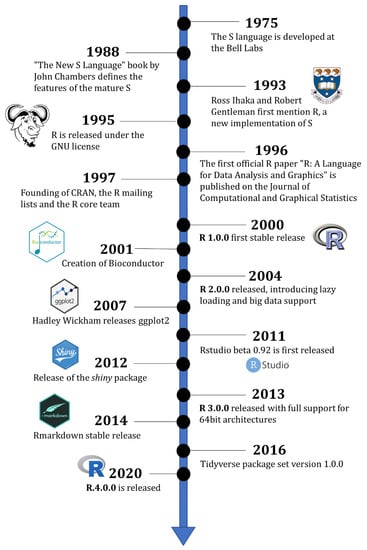Getting My Bioinformatics Tutor To Work
Getting My Bioinformatics Tutor To Work
Blog Article
Not known Details About Bioinformatics Tutor
Table of Contents9 Easy Facts About Bioinformatics Tutor ShownSome Of Bioinformatics TutorThings about Bioinformatics TutorThe 9-Minute Rule for Bioinformatics TutorLittle Known Questions About Bioinformatics Tutor.
Preliminary task development is rather lengthy, as it involves mindful planning of the topic, structuring of deliverables, and factor to consider of the skills and experience levels of individuals. However, once a job has actually been clearly defined and carried out, it has the potential to be reused in future sessions with only small revisions to show updates in the area or suit differences in participant backgrounds. This makes project-based finding out a sustainable and effective mentor strategy in the future, particularly in quickly advancing techniques like bioinformatics.To ensure continuity and reproducibility of knowing, offering shared lab notebooks-- either physical or digital-- is important. These note pads work as collective logs where trainees can tape their development, code, methods, and results throughout the program. Not just do they strengthen discovering by urging documents and representation, yet they additionally act as post-course recommendation materials that participants can consult in future research or scholastic tasks.
Coaches play an important duty in the success of project-based programs. Advisors also act as duty models and influence students to continue seeking careers in computational biology and associated areas.
Things about Bioinformatics Tutor
An additional key aspect of the knowing procedure is giving individuals the opportunity to present their work to others, especially to a target market past their prompt task team. Last discussions or mini-conferences allow students to articulate their findings, receive constructive feedback, and gain confidence in interacting scientific material. This presentation element is typically a preferred amongst trainees, as it verifies their efforts and highlights the real-world significance of their work.
The efficiency of this method was confirmed by the overwhelmingly positive feedback received after the first training course was supplied. The success motivated repeat offerings of the exact same program style in 2015 and 2016. Each model of the program was fine-tuned based upon individual responses and evolving best practices in rearing. These adjustments made sure that the core goals-- hands-on knowing, collaboration, and applied analytic-- stayed intact while expanding the deepness and breadth of subjects covered.
A significant visualization that caught individual belief was a word cloud generated from feedbacks to the 2014 end-of-course survey. Individuals were asked, "What was the finest component of the course?" and their feedbacks were put together into a visual word cloud. In this representation, the dimension of each word indicates exactly how frequently it was stated, with words like "hands-on," "collaboration," "real-life troubles," "assistance," and "interactive" showing up most prominently. This aesthetic feedback strengthened the program's emphasis on experiential discovering and mentor support.
The contributions of people such as Rustici, G., Orchard, S., Cowley, A., and Twells, R., along with other participants of the EBI user-training-working team, contributed in improving the training use this link course structure and material. Their understandings helped shape a comprehensive and adaptable design that can be adjusted to various institutional and regional contexts.
Bioinformatics Tutor Fundamentals Explained

Jones, Rasmussen, and Moffitt (1997) additionally advocated for interdisciplinary discovering via collective task work, noting its capability to simulate expert environments and prepare trainees for future scholastic or industry functions. In a thorough review, Thomas (2000) examined several research studies on PBL and wrapped up that pupils not just do well academically yet additionally develop a deeper understanding of the topic and boosted synergy skills.
In the context of bioinformatics education, ingenious methods like class video games and simulation-based training have also been utilized. As an example, Schneider and Jimenez (2013) presented making use of interactive video games to teach biological data combination, allowing trainees to comprehend intricate principles via experiential learning. This sort of gamification enhances the hands-on discovering stressed in project-based programs by presenting an aspect of fun and competition, which can even more enhance engagement.
Going back to the training course reviewed below, the lessons picked up from the application of project-based knowing in a bioinformatics setting have broader effects for various other STEM fields. The approach emphasizes not simply technological proficiency, but additionally interaction, partnership, and vital thinking-- abilities that are progressively valued in both academia and industry.
5 Simple Techniques For Bioinformatics Tutor
The scalability of the training course format additionally makes it a practical version for other establishments. With appropriate personalization based upon local needs, readily available resources, and individual accounts, the framework can be reproduced or adapted for use in various more information other scientific domains. In addition, the inclusion of structured mentorship and analysis techniques aids ensure constant top quality and measurable knowing end results.

In final thought, project-based understanding in bioinformatics offers a powerful technique to training complex, interdisciplinary material in such a way that is both accessible and intellectually stimulating. By highlighting cooperation, practical application, and crucial query, such campaigns not just boost individual knowing however likewise add to the farming of a brand-new generation of ingenious and proficient scientists.
Excitement About Bioinformatics Tutor

An additional trick facet of the learning process is providing participants the opportunity to present their work to others, particularly to an audience past their prompt task team.In the more comprehensive instructional literary works, project-based discovering (PBL) has actually been extensively examined and validated as an effective method for advertising deep understanding, critical reasoning, and transferable abilities. Adderley et al. (1975) highlighted the value of project methods in greater education and learning, noting that they promote active understanding and freedom. Schneider and Jimenez (2013) introduced the use of interactive video games to educate organic data integration, enabling pupils to comprehend complicated concepts via experiential discovering.
Report this page